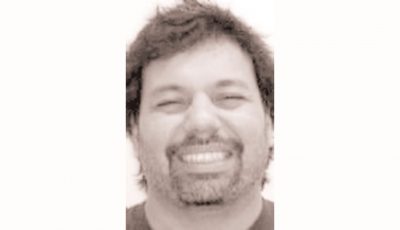Yo, dude, ‘nong Joe
That’s Jose Rizal whose birthday Pilipinos remember today. The man in black downed in Bagumbayan field one early morning 118 years ago in what is now Luneta in Manila walks the corridors of our memory. I was an activist during my college days, and I chose to have a man like Bonifacio fight for rights rather than a Rizal die for honor and pride. Boni now walks alongside.
I was born in Cuyapo, Nueva Ecija, center of agrarian unrest where the fight for rights translated to rights for rice. Lolo Jose died a martyr from Dominican friars’ machinations but the masonic Bonifacio was executed by his political opponents in a power struggle with General Aguinaldo who chose Jose Rizal as the primal hero of the country. U.S. guardians also opted for the passivity of a Rizal rather than the explosiveness of the sensitive and emotional Bonifacio. Likewise, Catholics in former Spanish colonies shed more tears on the passion of the cross than the determined table over-turner in the temple of Jerusalem and the reality of death having no dominion.
It really does not matter. The Pinoyze is both. This writer knows himself to be heir to the meta-brain of Europe that evolved from the sense of chosen-ness of the old couple Abraham and Sarah of the Levant down through the liberator Moses, the prophet Isaiah, the messianic Jesus, the apostle Paul, the theologian Augustine, the metaphysician Aquinas, the monastic Luther, and to the existentialist Kierkegaard, but also married to the rich natural instinct, intuition, intellect, and intention of an ordinary tao in the Malay peninsula.
Manong Jose come closest to the European heritage in our characterization while Bonifacio came naturally and reflexively to revolution but I am clear that the heroes of the Philippines today are no longer the exemplars of old but rather are the men and women in diaspora who bother to plumb the existential depth and profundity of their existence, expand the breath and scale the height of their human greatness, and embrace the gift of consciousness in their ordinary life, many doing so in their newfound residences around the globe, while others return home to establish a new order on the staid homegrown social stratification.
Except in the Tagalog region where Bonifacio was “King,” seventh of nine children born 153 yeas ago, Jose Rizal is prominently revered by the Pinoyze intelligentsia that fill professional and academic ranks around the world, along with the hardworking housemaids, shopkeepers, construction workers, and nannies that I’ve seen gather weekly on their off days in prominent centers and plazas in places like Hong Kong, Rome, and Madrid. Something about the 35-year-old martyr overshadowed his younger compatriot Bonifacio who died a year after Rizal’s intentional contortion to face the reluctant Pilipino soldiers assigned by the Spaniards to execute him on threat of being shot themselves should they choose not to perform their duty.
The precocious Rizal was, of course, a child of privilege. His siblings included an older brother Paciano who was open in speaking about freedom and individual rights, themes that the Dominican lessors of the family’s rice farms were not pleased to note, making the family change their name from Mercado to Rizal.
Ours is a captivity and liberation of a different nature. My captivity was once viewed as simply the challenge of survival. In Ilokandia where the meager real estate was not subdivided among siblings, the eldest got everyone educated so that they can be self-sufficient and migrate elsewhere, to Mindanao or abroad. The eldest kept the land and the youngest became a head nurse in New York, or a surgeon in Boston.
A Chinese colleague who once worked in Kuwait before Saddam grabbed the oil commented that the Filipino workers remitted half of their earnings home and kept the other half so they can party on precious “illicit” spirits on their day off. Her observation was of a people who worked hard, but played just as hard.
In contrast, she and her group never felt they earned enough dinars, so they saved every fils they can hang on to, and bit their nails along the way. They were prey to “get-rich-quick” schemes, which floated aplenty! I know of Chinese workers on Saipan who took their $30K savings from the garment industry and other side endeavors to the Tinian gaming tables before they were scheduled to leave island, and in their loss, became despondent and desperate get-rich-quick practitioners.
In the early ’90s, I worked on natural resource management with folks on Siquijor while living in Mactan off Cebu, and a gentleman who spent time in Saudi Arabia surviving on his world-wise and street-smart wits refused to return captive to the entrenched status quo on island, and engaged in a remarkable string of self-reliant entrepreneurial liberations.
It’s Jose and Josefina, Andres and Andrea Pinoyze dispersed and homebound who are the Rizal and Bonifacio of our time. Thank you to Lolo Pepe and Andres for their life demos, but the challenge of liberation from captivity, and the new lifestyle of individual freedom and responsibility, is now our very own!



























